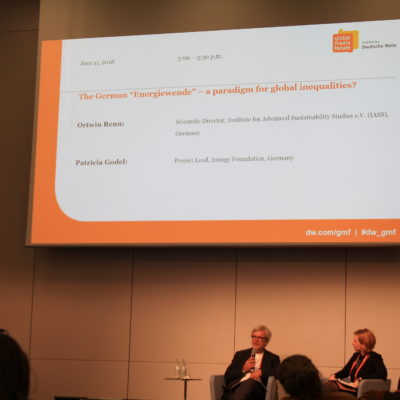While net neutrality is no longer protected in the United States, Europeans have other challenges when it comes to free and accessible Internet.
By Anna Romandash
Net neutrality is a rule slash a concept that all content on the Internet is treated equally; recently, it has been repelled in the US. This means that certain content can be favored or removed, which affects the way users access different data. While the law repelling net neutrality has been active for less than a month, it is difficult to track whether telecom companies have actually taken advantage of the new freedom and demanded money from the companies to make their content and services more visible. There is also a possibility that net neutrality laws will be passed again, this time by each different state in the US; or through a new legislation.
Although this change does not affect European users, they, too, are facing a new threat, this time in the form of a copyright law. The legislation has already been passed on the council level; if implemented, it means all EU member states will have to incorporate it into the national laws. While the law attempts to solve some of the unresolved copyright issues, it has some big flaws that affect people’s access to Internet and freedom of speech. Every platform that has user-generated content – such as Wikipedia or Facebook – will have to install upload filters. Such filters may be used not only to track copyright material, but also terrorist content. This, however, can lead to further censorship as well as mishaps in the system: firstly, the platforms would have to pay licensing fees for the filters; and secondly, there could be many issues in the work of the filters, which may threaten the existence of user-generated platforms like Wikipedia.
With many nuances regarding what’s copyright, there is a big possibility that filtering will only complicate the matter not to mention it can be further used to monitor Internet consumers. Now, only China uses such filters, so the new legislation could reshape online behavior of European users. Also, to quote any news sources or use their content, a platform would have to pay fees to the media organizations, but again, this puts the existence of user-generated platforms at risk – as many of them are non-profits like the abovementioned Wikipedia.
- Deutsche Welle Global Media Forum 2018 / Internet freedom and net neutrality at stake: How to defend digital rights / hosted by Stiftung Entwicklung und Frieden (sef:) / © DW/R. Oberhammer Thomas Lohninger (Epicenter.works, Executive Director, Austria/Germany)
- Deutsche Welle Global Media Forum 2018 / Internet freedom and net neutrality at stake: How to defend digital rights / hosted by Stiftung Entwicklung und Frieden (sef:) / © DW/R. Oberhammer
“Copyright reform is among the most dangerous European legislations,” says Thomas Lohninger, “So if you want to have a voice, you might be unable to use Facebook.” Lohninger is an executive director at Epicenter.works, a digital rights NGO based in Vienna; he has also worked on net neutrality regulation as policy advisor for European digital rights. “Since we have open Internet, we have never seen so much growth and innovation. Keeping Internet free and open and allowing all voices to be heard is a great concept, but there are politicians in Europe who want to bring back control,” Lohninger says, “They are scared after Brexit and election of Trump. Their thinking is that if everyone has a voice, we can no longer agree on major narratives; so why not make a shift on who can say something?” This poses a major challenge to the way Internet functions in Europe, and people’s accessibility to different platforms.
The new legislation also puts a burden on private companies to regulate the content; at the same time, it can also be used in different countries as a tool to pressure online platforms. With non-democratic developments that can be seen across the EU – most notably Hungary – such legislation could open a path of possibilities for Internet censorship. “All governments want to use the benefits of the Internet, but they also want to own it,” Lohninger claims.
Besides challenging copyright developments, there is also an issue with Internet accessibility and cost across European countries as well as defending people’s freedom online. While the EU is investing into e-participation of its citizens and getting them more involved in political procedures, the process is impossible without equal access to the Internet. Another issue includes business interests and strong corporate lobbying that affects various legislations including the one on copyright. “It is a global debate. Telecom operators have businesses running from networks, so for them, they can make money just by being big,” Lohninger concludes, “This principle from the phone world is now transferred to the Internet world so the providers want to make money not only from the users, but also from the companies like Wikipedia.” While there is a need to address the gaps in existing copyright laws, the new changes should not compromise Internet freedom or digital rights – not mention Internet’s accessibility and cost.






